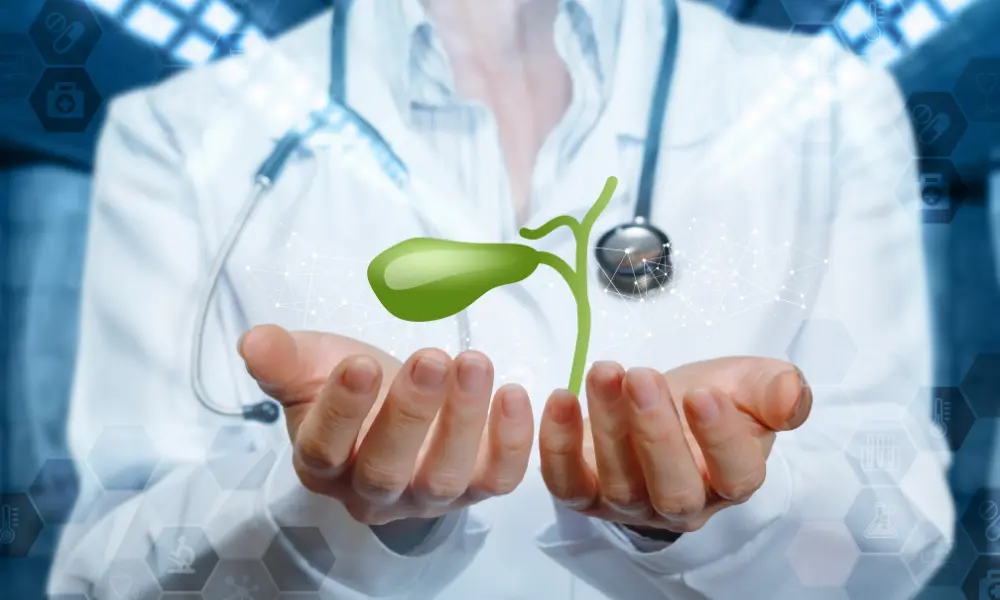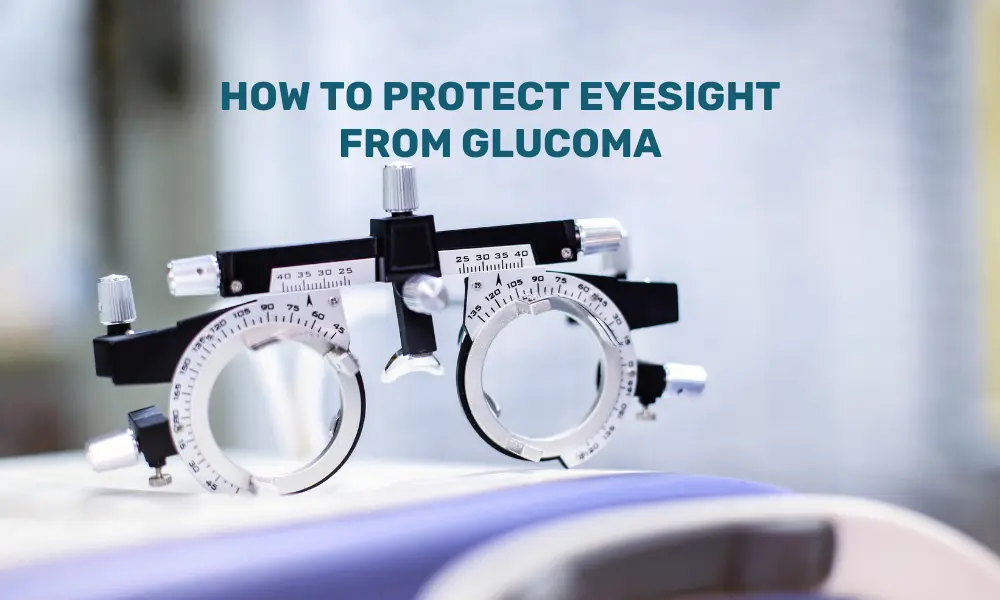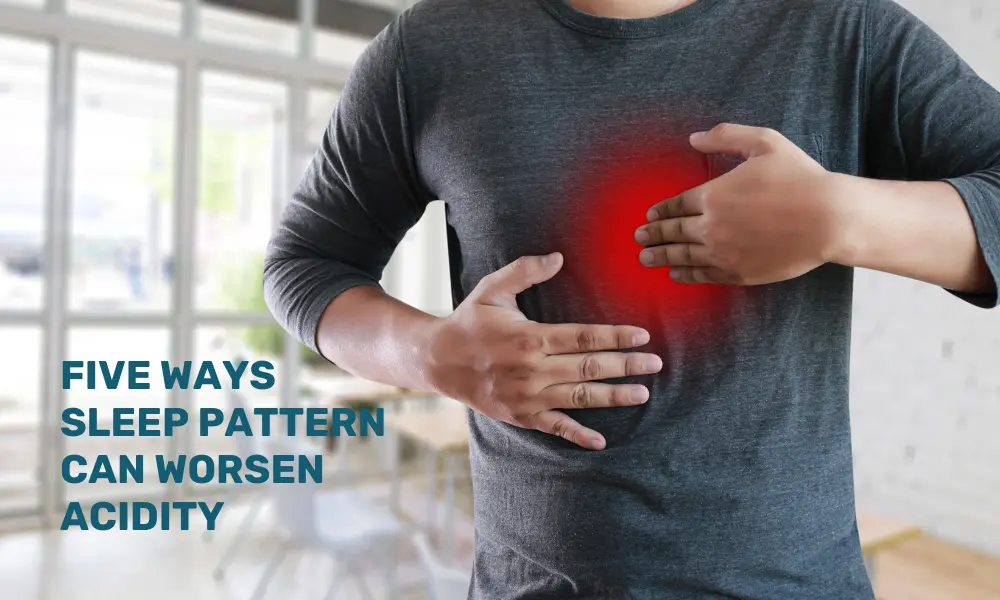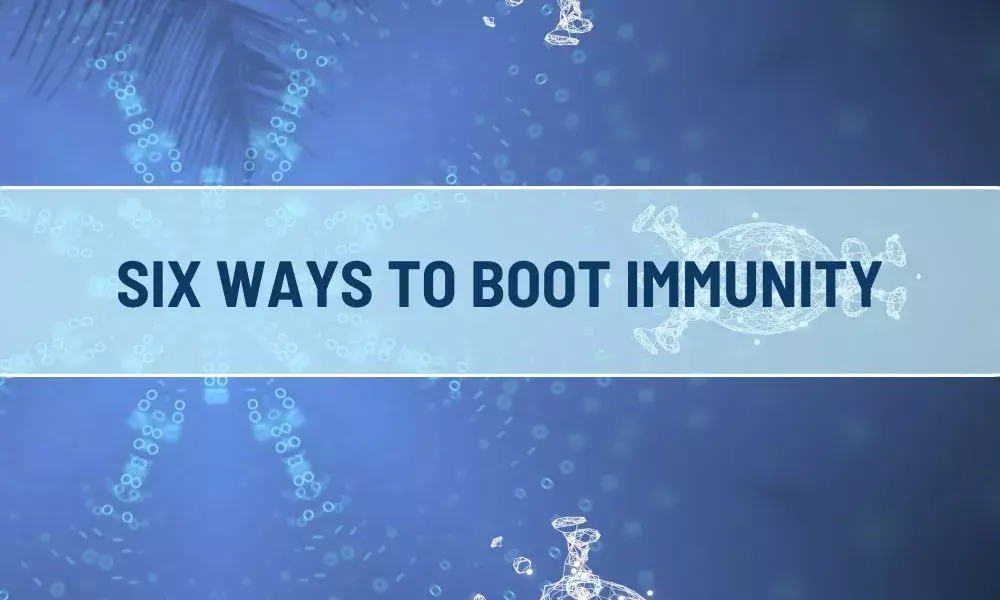Gallbladder removal surgery is also called cholecystectomy. It is a surgical procedure performed to treat gallstones, inflammation, or bile duct obstructions. While this surgery often provides lasting relief from pain and prevents life-threatening complications, many people experience temporary or long-term digestive changes after the surgery. Fortunately, most people adapt well with time by following dietary recommendations and lifestyle changes. However, some individuals may experience some side effects after the surgery.
Understanding the side effects, recovery timeline, and nonsurgical alternatives can help patients make informed decisions and manage their health better after surgery.
How does our Digestive system function post-gallbladder removal
The gallbladder stores bile, a fluid produced by the liver to aid in the digestion of fats. After gallbladder removal, bile flows directly into the small intestine. Although most people adjust well, some experience issues such as difficulty digesting fatty foods, changes in bowel habits, bloating, and diarrhea.
Factors for gallbladder removal
-
Gallstone formation can block bile flow, causing severe abdominal pain, nausea, or vomiting.
-
Gallstones or scarring can block bile ducts, leading to jaundice, infection, or pancreatitis.
-
Even without stones, a poorly functioning gallbladder can cause pain and digestive problems.
-
Gallbladder Inflammation
Removing the gallbladder eliminates pain, prevents infections, and reduces the risk of further complications like gallbladder rupture or severe pancreatitis. Most people live normal, healthy lives without a gallbladder because bile flows directly from the liver to the intestine.
Side effects of gallbladder removal
-
Constipation: While gallbladder removal often relieves gallstone-related constipation, anesthesia and pain medications used during surgery can temporarily slow bowel movements. Staying hydrated and including fiber-rich foods is advised to restore bowel regularity.
-
Diarrhea and Flatulence: Diarrhea is one of the most common side effects after gallbladder surgery. This happens because bile flows continuously into the intestine after surgery, which loosens stools. Diets high in fat or low in fiber may worsen the problem, often leading to excessive gas or bloating.
-
Jaundice or Fever: If gallstones remain in the bile duct, they can block bile flow, leading to jaundice (yellowing of the skin and eyes) and fever, often accompanied by severe pain. This requires immediate medical attention.
-
Difficulty digesting fat: Without a gallbladder, fat digestion is less efficient. People often experience bloating, indigestion, or stomach discomfort, particularly after eating high-fat meals. These symptoms usually improve over time, but may persist in some individuals.
Recommended Diet after gallbladder removal surgery
After gallbladder removal surgery, the human body needs time to adjust to digesting fats without a bile storage system. The gallbladder normally regulates bile release during digestion, and without it, bile flows continuously into the intestines. This can sometimes lead to bloating, diarrhea, or discomfort if heavy or greasy foods are consumed too soon after eating.
Initial phase: Liquid and bland diet
For the first 24–48 hours, doctors often recommend sticking to clear liquids or soft, bland foods such as broths, plain rice, mashed potatoes, and yogurt. This gives your digestive system a chance to recover and prevents irritation.
Gradual reintroduction of foods
As your body adapts, you can gradually reintroduce regular foods into your diet. Key recommendations include:
-
Avoid fried, greasy, or spicy foods initially, as they are more difficult to digest and can trigger diarrhea or abdominal cramps.
-
Increase water intake to stay hydrated, especially since some people experience mild diarrhea after surgery.
-
Add fiber-rich fruits and vegetables such as carrots, spinach, apples, and berries, which support healthy bowel movements. However, gas-forming vegetables like cabbage, broccoli, and cauliflower should be introduced slowly to prevent bloating.
Long-term dietary habits
Most people can return to a normal diet within a few weeks; however, maintaining a low-fat, balanced diet is recommended to prevent long-term digestive discomfort. Eating smaller, more frequent meals rather than large portions may also help improve digestion.
Natural remedies and supplements for gallbladder health
Some people try gallbladder cleanses, such as consuming olive oil and lemon juice, to naturally flush stones. However, these methods lack strong scientific evidence and should be approached with caution.
-
Apple cider vinegar and turmeric have anti-inflammatory properties that may support gallbladder health.
-
Magnesium and choline supplements may help reduce the risk of gallstone formation.
-
Acupuncture has shown potential for improving bile flow and reducing pain.
Gallbladder removal surgery can be life-changing for individuals with chronic pain or gallstones, but by following dietary recommendations and lifestyle changes, individuals can cope well.
Disclaimer: This article is meant for informational purposes only and must not be considered a substitute for professional advice.





